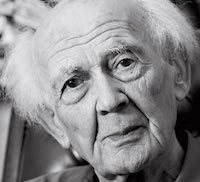Trump’s reelection personified a profound sense of disempowerment and disenfranchisement among many Americans. The constitutional patriotism that once anchored the nation’s cultural fabric is eroding, leaving citizens feeling that the boundaries of belonging no longer provide the support or cohesion they need. This void has been filled by inflammatory rhetoric and the scapegoating of migrants and minorities, reducing public discourse to a cacophony of accusations. What steps can the Left take to address these demands directly? Is there a path for populism to find a home on the Left, or has the idea of solidarity been irrevocably claimed by an ethnonationalist movement?
Dossiers
United States
- Where does the current crisis come from, and can there be any political solution? Five world-renowned post-Sovietic geopolitics scholars and journalists respond in this Dossier derived from the recent Reset DOC roundtable: José Casanova, Andrea Graziosi, Nataliya Gumeniuk, Alexander Motyl and Frank Sysyn.
- America’s embarassing retreat from its “longest war” in Afghanistan has damaged so heavily its international credibility, that the questions being asked this month by world governments – as well as non-State actors and movements – may well redefine their strategies for years to come. Here’s a first comparative glance.
- Today’s world and tomorrow’s America don’t look the same as they did one month ago. If that is the case, socially and politically, it is not just because of the “revolutionary” power of the Covid-19 pandemic, which has demonstrated its ability to disrupt well-established political leaderships, but also because of a different, human-moved force of change: the global anti-racist revolt which has followed George Floyd’s murder. How will it impact on the US, four months short of a crucial election, and the world? A kaleidoscope of stories, voices and perspectives in this special ResetDoc Dossier.
- Contrary to all predictions of an era dominated by digital agorà, especially for the youngsters, the square is back as the primary place and instrument of protest. A comparative enquiry.
- An “illiberal trend” is haunting Europe. And the United States. It is a virus that is eating away at our democracies, which seem ever less to resemble “Liberal Democracy.” Freedom of the press and freedom of religion are being squeezed across Europe; independent institutions are contested by political parties that enjoy significant public support. The fundamental respect for human rights is no longer the guiding principle of the democracies that emerged from the Second World War.
- At the dawn of Trump’s presidency, we selected a shortlist of our analyses on the path and consequences of his rise to power.
- Zygmunt Bauman died yesterday at the age of 91. His death marks the loss of one of the most distinguished European intellectuals. Bauman gained widespread acclaim for his capacity to give a voice and language to contemporary social configurations. The end of Fordism – the main theme of Bauman’s work in the last few decades – as well as the transition to a “liquid society” have dominated his reflections and, due to his work, now appear to us as common sense. His last essay for Reset-Dialogues on Civilizations was about Trump: “The strongmen and the anxious class”.









